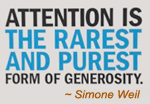 Wendy Wood, a professor of psychology and business at the University of Southern California, says that a habit only becomes bad “when it starts interfering with other important goals you may have.” This piece is adapted from the New York Times article Turning a New Year’s Resolution Into Action With the Facts (1.9.2015).
Wendy Wood, a professor of psychology and business at the University of Southern California, says that a habit only becomes bad “when it starts interfering with other important goals you may have.” This piece is adapted from the New York Times article Turning a New Year’s Resolution Into Action With the Facts (1.9.2015).
Red Lipstick and Feminism (M. Marsh)
 Although this article strays a bit from “Psychotherapy” and “Personal Growth,” I found it an interesting look at the relationship between self-beautification and the sexualization of women. Author Madeleine Marsh, who wrote a history entitled Compacts and Cosmetics: Beauty from Victorian Times to the Present, explores the history of cosmetics and lipstick; she suggests that — contrary to common knowledge — red lipstick in particular has been a symbol of female strength, especially in the past century.
Although this article strays a bit from “Psychotherapy” and “Personal Growth,” I found it an interesting look at the relationship between self-beautification and the sexualization of women. Author Madeleine Marsh, who wrote a history entitled Compacts and Cosmetics: Beauty from Victorian Times to the Present, explores the history of cosmetics and lipstick; she suggests that — contrary to common knowledge — red lipstick in particular has been a symbol of female strength, especially in the past century.
The Importance of Being Generous (Parker-Pope)
 In an article from The New York Times Magazine (“The Generous Marriage,” 12.11.11), Tara Parker-Pope shared the latest research from the University of Virginia’s National Marriage Project. According to this study, GENEROSITY — “the virtue of giving good things to one’s spouse freely and abundantly” — was a predictor of “very happy” marriages.
In an article from The New York Times Magazine (“The Generous Marriage,” 12.11.11), Tara Parker-Pope shared the latest research from the University of Virginia’s National Marriage Project. According to this study, GENEROSITY — “the virtue of giving good things to one’s spouse freely and abundantly” — was a predictor of “very happy” marriages.
Removing Perfectionism from the Bedroom (M. Huston)
 Perfectionism — the pursuit of unrealistic standards for ourselves and for our partner — inevitably creates difficulties in the relationship (in general) and in the bedroom (in particular). Psychologists and relationship counselors around the world encourage greater tolerance of human imperfection and a recalibration of expectation.
Perfectionism — the pursuit of unrealistic standards for ourselves and for our partner — inevitably creates difficulties in the relationship (in general) and in the bedroom (in particular). Psychologists and relationship counselors around the world encourage greater tolerance of human imperfection and a recalibration of expectation.
Giving Feedback That Can Be Heard (B. Brown)
 Many couples struggle with the giving and receiving of criticism. Often framed in ways that shame, blame, belittle or humiliate, criticism is rarely well-received and usually results in defensiveness and disengagement. A helpful way to get around these pitfalls is to think in terms of constructive, honest and engaged feedback.
Many couples struggle with the giving and receiving of criticism. Often framed in ways that shame, blame, belittle or humiliate, criticism is rarely well-received and usually results in defensiveness and disengagement. A helpful way to get around these pitfalls is to think in terms of constructive, honest and engaged feedback.
An Easy Tip to Improve Your Mood (Dunn & Norton)
 In an article in today’s New York Times entitled Hello, Stranger (4.25.14), Professors Elizabeth Dunn (Univ. of BC) and Michael Norton (Harvard Business School) describe how the casual social interactions we often avoid may lift our spirits and actually make us happier. This has definitely been my own experience. I share here selections from their article.
In an article in today’s New York Times entitled Hello, Stranger (4.25.14), Professors Elizabeth Dunn (Univ. of BC) and Michael Norton (Harvard Business School) describe how the casual social interactions we often avoid may lift our spirits and actually make us happier. This has definitely been my own experience. I share here selections from their article.
Self-Acceptance or Self-Improvement? (D. Brooks)

In a compelling piece in yesterday’s New York Times (Ease and Ardor, 2.27.14), op-ed columnist David Brooks takes a close look at two of the greatest essayists who ever lived: Michel de Montaigne and Samuel Johnson.
Brooks notes how the two men tackled similar problems and were fascinated by some of the same perplexities, yet emerged with different attitudes towards adversity and living life: Montaigne focused on self-understanding and self-acceptance, while Johnson sought self-conquest and self-improvement; where the former sought a life of wisdom and restraint, the latter pursued a life of improvement and ardor.
